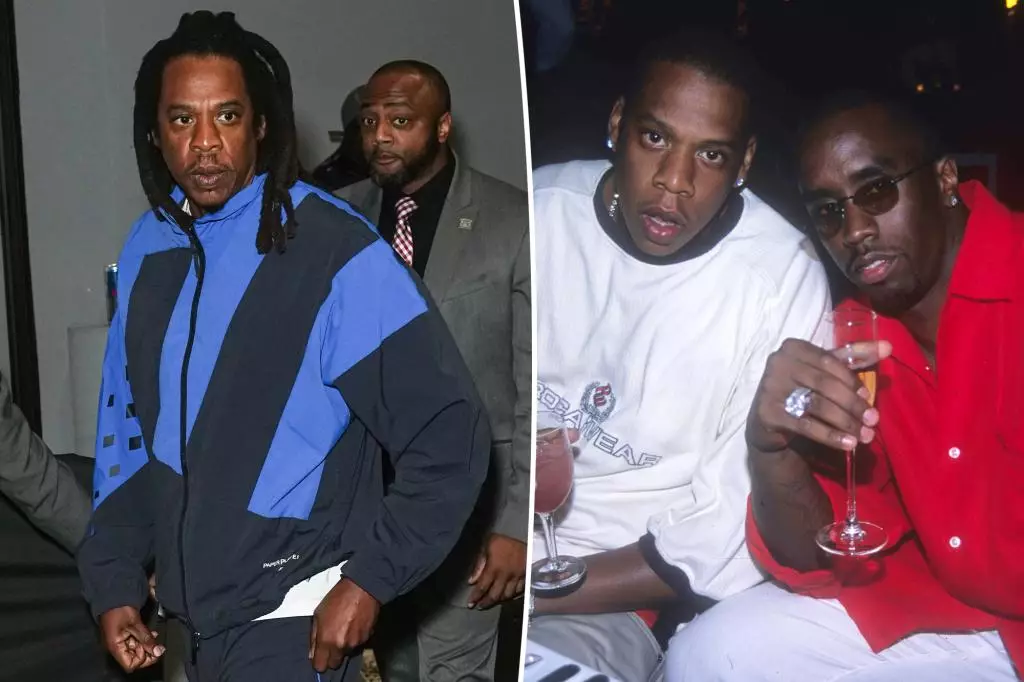The recent court ruling allowing an unnamed plaintiff to proceed with her sexual assault lawsuit against Jay-Z and Sean “Diddy” Combs underscores the complexities of legal proceedings involving high-profile figures. Presided over by Judge Analisa Torres in New York, the ruling not only grants the accuser the ability to remain anonymous but also highlights significant issues surrounding the balance of privacy, media scrutiny, and celebrity influence within the judicial system.
Judge Torres determined that the plaintiff, described as “Jane Doe,” faces substantial risk from the public disclosure of her identity. The ruling cited the potential long-term effects of trauma, such as depression and post-traumatic stress disorder (PTSD), indicating that revealing her identity could exacerbate these conditions. The court’s decision reflects a growing acknowledgment of the vulnerabilities experienced by sexual assault survivors, particularly those caught in the public eye, and recognizes how media attention can compound their trauma.
Torres’s ruling also criticized the legal maneuvers employed by Jay-Z and his team. The judge characterized their approach as combative and laden with inflammatory language—suggesting that such tactics can often be more damaging than beneficial to the case at hand. This stance raises critical questions about the overall legal strategy employed by high-profile defendants. Tactics that prioritize aggressive legal posturing can detract from the substantive issues at hand, suggesting that strategy may sometimes overshadow justice in these cases.
The decision to allow anonymity parallels the overall dynamics of celebrity culture and its frequent intersection with the legal system. Accusations against public figures often become sensationalized, leading to an environment where victims may feel dissuaded from coming forward due to the anticipated backlash and scrutiny. The inadequacies inherent in the wider legal framework surrounding sexual assault cases may create a chilling effect on victims, who may already feel marginalized.
Additionally, the societal implications of such rulings are profound. Allowing anonymity could encourage more survivors to share their stories without the fear of public exposure. However, it also raises questions about transparency and accountability for those accused, especially concerning nuanced discussions about evidence and credibility during trials.
Broader Implications for Sexual Assault Litigation
The plaintiff’s case against Jay-Z and Diddy is emblematic of wider societal threads interwoven with issues of consent, agency, and the historically rooted dual narratives that emerge from sexual assault cases involving celebrities. The public’s appetite for sensational stories can complicate matters in the courtroom. For the legal system to serve its purpose effectively, it must prioritize justice over sensationalism. This case accentuates the ongoing struggle between individual rights, media interest, and the overarching quest for truth.
The mention of the plaintiff’s prior admissions of inconsistencies complicates the narrative further. In such sensitive cases, especially those involving historical claims of abuse, discrepancies can be employed strategically by the defense—often painting a narrative that minimizes the credibility of the survivor. It reiterates the notion that victims may not remember every detail perfectly, which does not negate the validity of their experiences.
As the legal proceedings unfold, what remains evident is a complex landscape fraught with emotional, cultural, and legal intricacies. The implications of Judge Torres’s ruling extend beyond the immediate parties involved; they resonate within broader discussions about victim support, the reputation of the accused, and the justice system’s efficacy in addressing sexual violence.
The high-profile nature of both defendants contributes to an intensely scrutinized legal battle, but the essential focus should remain on the pursuit of justice and the acknowledgment of trauma. As both men prepare to challenge these allegations, society watches closely—not only for the outcome of this specific case but also for its potential to affect the treatment and perception of sexual assault claims in the future. The courtroom battle will inevitably reflect prevailing attitudes toward consent, accountability, and the very fabric of societal ethics surrounding celebrity culture.

